Applied Biological Sciences is a fascinating field with a big impact on our daily lives. While Biomedical Science is the most well-known branch, Food Science and Agriculture are rapidly gaining popularity. This interdisciplinary field plays a crucial role in improving food quality and safety.
So, if you want to build an illuminating career, studying at the best food technology colleges in India might be a perfect fit.
What is Food Science?
Food Science applies biochemistry, physical sciences, and chemical engineering to study food’s physical, chemical, and biological properties. It focuses on manufacturing, processing, preserving, and distributing food to make it safer, healthier, and more accessible. Every packaged food item you see in a store has contributions from food scientists or technologists.

Why Is Food Science Important?
Food science is crucial because it ensures food safety, improves packaging, and reduces waste. Food scientists make processed foods healthier, tastier, and more convenient, such as pasteurized milk, frozen meals, health drinks like Horlicks, and ready-to-eat meals.
Studying at the best food technology colleges in India helps students gain the skills needed to solve challenges in food production and innovation.
Scope of Food Technology in India | 2025
The field of food technology is growing rapidly in India, offering numerous job opportunities in 2025. With increasing demand for safe, nutritious, and innovative food products, professionals in this industry are in high demand. This blog provides an overview of the current job market, career opportunities, emerging trends, and salary expectations in food technology.
There are many job opportunities in food technology, with companies in India actively hiring for various roles. Some popular positions include Quality Assurance Specialist at KFC India, Product Development Specialist at Unilever, R&D Executive at Britannia Industries, Food and Beverage Manager at MNC Group, and General Manager – QA Audit at Parle Agro Pvt Ltd. Other positions include QC Officer, Maintenance Officer, Food Production Executive, and Food Technology Executive at companies like Creative HR Service, SATS Ltd., and Tesloye Consultancy Services. These roles are in high demand as the food industry grows and evolves.
Industry Insights
- Job Demand: The job market for food technology professionals is thriving. From quality control to product development, many companies are seeking candidates with knowledge of the latest food safety regulations and technological advancements.
- Skills Required: To succeed in food technology, professionals should be familiar with food processing techniques, quality assurance practices, and regulatory compliance. Technical skills in areas such as food safety standards and production optimization are also highly valued.
- Emerging Trends: There is a growing trend toward sustainability in food production, with companies focusing on reducing waste and improving energy efficiency. Additionally, technological advancements, including the use of AI and automation in food processing, are creating new job opportunities for tech-savvy individuals.
How Food Technology Improves Food Quality
Food technology plays a crucial role in enhancing the quality of food products. Here are some key ways food technology is improving food quality:
- Nutritional Improvements: Food scientists work on fortifying food items with essential nutrients. For example, they may add vitamin D to milk to make it more nutritious. This helps ensure that food products meet the nutritional needs of consumers.
- Safety Standards: Food safety is a top priority in food technology. Technologies like Hazard Analysis Critical Control Point (HACCP) are used to monitor and manage food safety during production. This ensures that food products are safe for consumption.
- Shelf Life Extension: One of the major challenges in food production is ensuring that food stays fresh for a long time. Food technology helps extend the shelf life of products through better packaging and preservation methods like freeze-drying and vacuum sealing.
Food scientists and technologists also study how food properties change during processing. They conduct experiments to identify the best ways to preserve food, making sure that the end product meets consumer needs. With the growing demand for high-quality food, food technology is playing a vital role in shaping the future of the food industry.
Career Opportunities in Food Technology
Food technology offers a wide range of career opportunities. This field integrates food science and engineering, offering roles in research, production, quality assurance, and regulatory compliance. After completing a food technology degree from SRM University Delhi-NCR Sonepat, popularly known as the best food technology college in India, you can unlock a wide range of career possibilities.
- Food Scientist: Focuses on researching and developing new food products, ensuring they are safe and of high quality.
- Food Technologist: Manages the production processes, ensuring that raw materials are converted into high-quality food products.
- Quality Assurance Manager: Ensures that food products meet safety and quality standards, implementing quality control measures.
- Food Safety Officer: Responsible for checking compliance with food safety regulations and preventing foodborne illnesses.
- Food Process Engineer: Designs and optimizes food processing equipment and systems to improve efficiency.
- Food Packaging Technologist: Evaluates packaging materials and processes to ensure they are safe and effective in preserving food products.
Salary Overview
The salary for food technology professionals in India varies depending on their role, experience, and specialization. Below is an overview of the average annual salaries for different positions in food technology: The salaries can vary based on experience level:
- Entry-Level: Around 3-5 LPA (Lakhs per annum)
- Mid-Level: Around 5-8 LPA
- Senior-Level: Can go up to 8-12 LPA
Specialized roles, such as food scientists and quality assurance managers, tend to offer higher salaries due to their expertise and responsibility levels. The demand for food technologists is strong across sectors such as food processing, beverage industries, research institutions, and regulatory bodies.
Factors Influencing Salaries
Several factors can influence salaries in food technology:
- Industry Sector: Companies in the FMCG sector (Fast-Moving Consumer Goods) often offer better compensation packages.
- Experience Level: Entry-level professionals can expect salaries starting from ₹3-5 Lakhs, while senior professionals can earn up to ₹12 Lakhs or more annually.
- Location: Salaries can also vary depending on the location of the job. Cities with a higher cost of living, such as Mumbai or Delhi, may offer higher salaries.
Growth and Emerging Trends in Food Technology
The food technology industry in India is rapidly expanding. This growth is driven by increasing consumer demand for innovative and safe food products. Some emerging trends include:
- Sustainability in Food Production: Companies are increasingly focusing on sustainable practices in food production, such as reducing waste and using eco-friendly packaging materials.
- Technological Advancements: Integrating AI, automation, and advanced processing techniques is creating new opportunities for professionals in the field.
With the growing importance of food safety, quality, and sustainability, food technology has great potential. If you are considering a career in this industry, attending the best food technology colleges in India can provide you with the knowledge and skills needed to thrive in this dynamic field.






